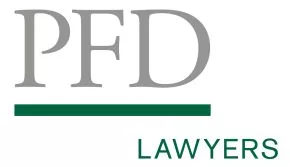Only a short distance from Québec's urban centres lies land claimed by Indigenous nations. Before planning any type of activity on claimed territory, including natural resource development projects, it is important to be aware of the potential impacts of Indigenous rights.
Greater recognition for Indigenous rights was granted in the 1982 Constitution Act and the need to respect these rights has been expressed in various court rulings. There are numerous types of Indigenous rights, from traditional land use rights, such as hunting, trapping, fishing and gathering, to ancestral rights akin to property ownership rights.
In some parts of Canada, ancestral rights claims have become subject to regulations in contemporary and historical treaties. However, several territories that are not mentioned in treaties have been claimed by different Indigenous nations. These claims often pertain to the exclusive occupation and use of the land. To obtain such recognition, an Indigenous nation must demonstrate that it was the sole group to occupy the land before the Crown asserted its sovereignty. Recognition of these rights provides exclusive occupation and use of the land for purposes that need not be solely traditional or specific (Tsilhqot'in Nation v. British Columbia, 2014 SCC 44, [2014] 2 S.C.R. 256).
The Crown therefore has the obligation to consult Indigenous groups—and accommodate them whenever required—when installations or activities could impact their rights. Project proponents seeking to develop claimed land must undertake discussions with local Indigenous nations to establish accommodations to each party's satisfaction. These discussions aim to address the concerns expressed by Indigenous groups and implement a project development framework. The process often leads to agreements that entail benefits for the Indigenous group (e.g. employment opportunities, contracts and royalty payments). In exchange, the proponent will obtain guarantees to develop the project.
Failing to initiate discussions with Indigenous nations can lead to unfortunate consequences. In fact, groups have often cited their ancestral rights to seek injunctions against proponents, forcing them into negotiations leading to complex, lengthy and costly legal challenges.
Traditions and practices cause nations themselves to take legal action but band chiefs, elders and individuals who use the land may also do so, possibly complicating discussions on accommodations in view of a settlement. In fact, certain individuals may pursue land claims along with an Indigenous nation.
While the Supreme Court has already recognized that Indigenous title is communal (Tsilhqot'in Nation v. British Columbia, 2014 SCC 44, [2014] 2 S.C.R. 256), the Superior Court indicated that there is a community interest in asserting an Indigenous title and that elders, families and family members cannot bring about the failure of a land use agreement concluded with the community.
In Les Uashaunnuat (Les Innus de Uashat et de Mani-Utenam) et autres v. La Procureure générale du Québec et autres (Superior Court, February 23, 2016, no. 500-17-050868-093 (Thomas M. Davis, J.C.S.); appeal still possible at the time of writing), a Superior Court justice clarified how the rights of an individual and those of a traditional group stand. In this particular case, the Innu of Uashat Mani Utenam (hereinafter, UM), the Innu Takuaikan Uashat Mak Mani Utenam band, the band chief and council members and certain elders and their family members took legal action to block Hydro-Québec's Romaine hydroelectric project in Côte Nord. Following a series of negotiations, a tentative agreement was reached in February 2014 between the crown corporation and the UM Innu nation. The agreement, which came on the heels of other attempts that had been rejected by the community, was approved by referendum.
Under the terms of the agreement, the band was granted certain benefits, such as the obligation to negotiate with Innu firms at certain phases in the project and the payment of sums to the community. In exchange, the UM Innu agreed not to hinder the initiative and discontinue certain actions pertaining to the Romaine project. A group of elders, families and family members listed as co-plaintiffs in the action opposed the agreement.
In the case, the Court granted a motion to dismiss the action against the dissident families. The judge declared that it would be abusive and go against the interests of justice for the families to counter an agreement that was negotiated and accepted by the community, insisting on the fact that the accord was specific and did not take away the UM Innu's ancestral or treaty rights on the territory in other actions. But if the dissident families had demonstrated the eventual existence of traditional land use rights, the judge may not have granted the motion.
In essence, the lesson learned here is that it is critical to identify the nation that is claiming land rights on a territory slated for project development and determine whether families or individuals use the land for traditional purposes. This approach is key to undertaking discussions with stakeholders when seeking to set out an agreement in order to move forward with a project on Indigenous land.
About Mackrell International - Canada - Prévost Fortin D'Aoust is a Quebec based business law firm with offices in Montreal, Saint-Jérôme, Boisbriand, Sainte-Agathe-des-Monts and Laval, and a member of Mackrell International. Mackrell International - Canada is comprised of four independent law firms in Alberta, British Columbia, Ontario and Quebec. Each firm is regionally based and well-connected in our communities, an advantage shared with our clients. With close relations amongst our Canadian member firms, we are committed to working with clients who have legal needs in multiple jurisdictions within Canada.
This article is intended to be an overview and is for informational purposes only.


